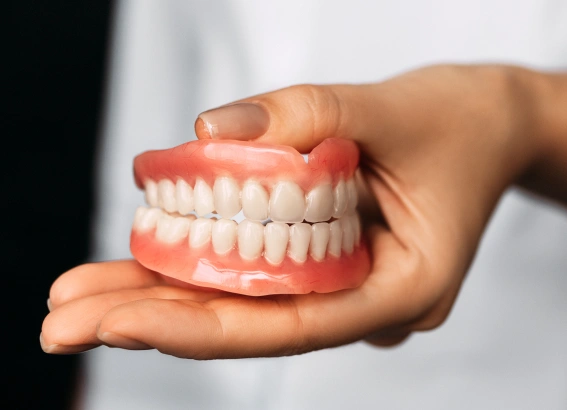
what are dentures?
Dentures are a prosthetic that replace missing teeth and are supported by the gums and jaw. While conventional dentures can be removed, there are different types available. Some of these other designs are meant to clasp onto the teeth or are fixed in place.
What to expect at your denture consultation in Clarksburg
Preparing the Mouth
Dr. Zaidi will begin by ensuring that your mouth is ready for the dentures. This may involve removing one or more teeth.
Measuring for Dentures
Next, Dr. Zaidi will take X-rays and digital impressions of your mouth to ensure a perfect fit. She will use dental plaster to create a 3D model of your mouth.
Forming the Dentures
Dr. Zaidi will send these impressions to a dental lab to create dentures that have a custom fit. The dentures will be formed and shined to look just like natural teeth.
Fitting the Dentures
Finally, when your dentures are finished, you will have a final fitting with Dr. Zaidi. They will test and adjust them to make sure that they fit both firmly and comfortably in your mouth.
Follow Up Visits
You should continue to have regular checkups at Urban Dental Studio in Clarksburg, even if you wear dentures. Oral health is important, and Dr. Zaidi will also do periodic checks to make sure that your dentures continue to fit well, and are not causing any issues.
what kind of dentures can I get?
Full Dentures
Full dentures are the traditional dentures that most people think of when they hear the word. These are made from a plastic base that looks like gum tissue and seals to your own gums. They support a set of false teeth made of either resin or porcelain.
Partial Dentures
Also known as a “bridge”, partial dentures are false teeth that adhere to a plastic base which may be held in place by a metal framework attached to existing teeth. This option is available for those who have some remaining teeth that can be used to anchor the bridge.
Implant Retained Dentures
Secure and durable, implant-retained dentures are replacement teeth that are anchored directly to the jawbone. These allow the dentures to function almost exactly like your natural teeth.
Find Answers Here
Have questions about cavities and fillings?
If you have a full dental insurance policy, it will typically cover at least some restorative costs. Generally, this means that up to 50% of the cost of dentures is covered by insurance.